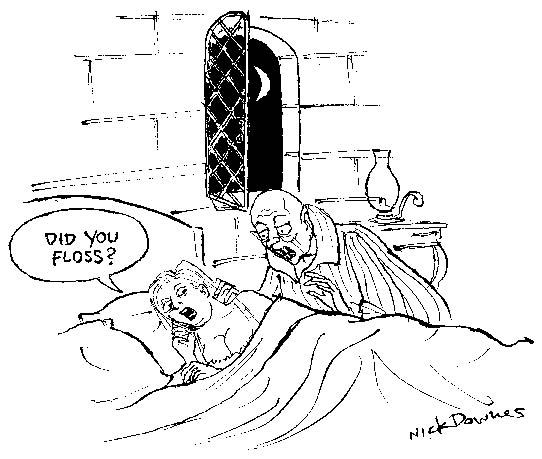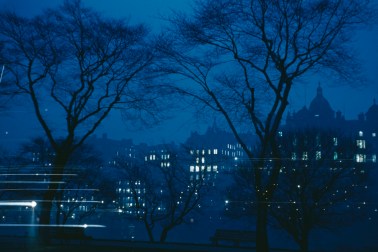It is the 50th anniversary of Coronation Street and there seems to be as much celebration and feasting as there was for the Queen’s own golden jubilee, in 2002.
It is the 50th anniversary of Coronation Street and there seems to be as much celebration and feasting as there was for the Queen’s own golden jubilee, in 2002. I have to declare a personal interest here. The inventor of Corrie is Tony Warren, who told my father that his book, The Uses of Literacy, had been one of his inspirations. It had shown working-class life to be as rich and complex as the lives lived by the middle and upper classes. This does not mean that it was in any sense superior, merely that it was as textured and as interesting as anything that happened to people with more money.
Since then, working-class life has been the staple of nearly all our soaps. Whereas in the US, prime-time soaps are generally about the rich (‘Ah don’t care if you are a billionaire, JR, ah’m gonna chase you into the bowels of hell to git what’s owin’ to me,’ for instance). In Australia, they tend to concern the middle classes. ‘Better sit down, Jolene. Got some bad news. Washing machine needs a new filter.’)
Looking at some of the celebratory shows that will be filling the networks, not least ITV, two things struck me. Warren got his women right. Ena Sharples, Bet Lynch, Elsie Tanner — to anyone growing up in the north they were familiar figures, easy to recognise, taking no nonsense, capable of running the family and bossing a whole community. In Corrie it’s the women who are tough, and the men who are the weaklings, prey to drink, gambling and more predatory females. Remember Gillian Duffy, the Rochdale woman Gordon Brown fell foul of during the election campaign this year? She could have stepped straight from the cobbles of Weatherfield.
And it’s funny. If EastEnders is about misery — rape, murder and despair — Coronation Street includes jokes and comic scenes. They love cat-fights, and if the fight is at someone’s nuptials, so much the better. (As the Salford comic Al Read used to say, ‘There were enough said at our Edie’s wedding.’) ‘You lying little whore…you evil, vindictive cow!’ is typical. These gals can wield a stiletto heel like a stiletto.
The writers have also tracked social change. I remember being in the Granada studios years ago and hearing a couple of technicians talking about restaurants in Wilmslow or Prestbury, or in whichever wealthy village they lived. By now they will have been driven out by footballers, who are even richer than they are. Then they were discussing the best local restaurants. ‘The steak was so big, it wouldn’t fit on the plate!’ said one, in wonderment. One frequent theme is the way aspiration can get out of control. There was a good comic scene when the Battersbys got a Jacuzzi, in which they ate pizza until it fell through the floor.
There is, of course, plenty of manipulation going on, too. Coronation Street isn’t realistic. Gritty doesn’t equal true-to-life, as Jimmy McGovern dramas remind us. It offers an enhanced realism, a simulacrum, a daily existence which is more vivid, more exciting, funnier, sexier and sometimes more threatening. We saw one of the writers musing, ‘Who’s the ’appiest couple on the Street? Sally and Kevin. Let’s break them up.’ So Natalie had an affair with Kevin (and a cat-fight with Sally) after which they ended up on the front page of the Sun. Result!
(Perhaps their ultimate apotheosis came when Tony Blair joined the fictional campaign ‘Free the Weatherfield One’ to get the character Deidre Rashid out of prison in 1998. Even at the time, when politicians leapt into popular culture like dogs into puddles, this seemed absurd.)
I see no reason why Corrie should not continue for another 50 years, provided the people who write the plots and the scripts keep their ears sharply attuned to changes in society and in attitudes. Soaps only die when they lose touch with popular concerns. When did you last hear an Archers character offer advice on growing winter wheat?
In the vast wasteland of cable television, there is occasional treasure. This week the Eden channel offered Mount St Helens, about the volcano which erupted in Washington State 30 years ago. Again, a personal interest — I walked on it a few weeks beforehand, though would not have dreamt of doing so if we had known that the top cubic mile of the mountain was about to disappear.
But this fascinating documentary showed how life had returned to this wasteland: animals, fish, plants, all adapting frantically to the new conditions. Salamanders have learnt to metamorphose in water instead of on land where there is now no shade for them. This in a country where most people don’t even believe in evolution!
In a bleak St Louis tenement, the Wingfields are buckling beneath the Depression and their mother’s old-fashioned aspirations. A framework of fire escapes and raised walkways provides convenient perches from which Tom (Leo Bill) can narrate and look on with foreboding as his lame sister is dressed and groomed for the long awaited ‘gentleman caller’.
Centre-stage in the Young Vic’s production of The Glass Menagerie (until 15 January), a raised dining table dominates. Laid with a white cloth and warped candelabra, altar-like, it comes into its own when Laura – the sacrificial lamb – limps trembling towards it, but otherwise it marginalises the actors, who tend to get lost amid a cluttered set.
Though Deborah Findlay delivers Amanda’s nostalgic reminiscences in a perfect Dixie drawl – each peal of laughter graced with a cute squeal on the inhale – she lapses too often into glum immobility for her children’s downtrodden attitude to ring true. This mars the drama, but the delicate lyricism of the final scene makes up for it. Kyle Soller (as Jim), dispensing self-help sophisms with clumsy urbanity, is the ideal foil for Sinéad Matthews, above, who adds a stutter to Laura’s limp, making her straightforward lines seem all the more honest and heartfelt. She reveals to Jim the reservoir of thwarted tenderness she has channelled into her collection of glass animals. As she allows him to hold the unicorn up to the light, we realise just how little she has been surviving on. ‘Oh, be careful –’ she says, ‘if you breathe, it breaks!’





Comments